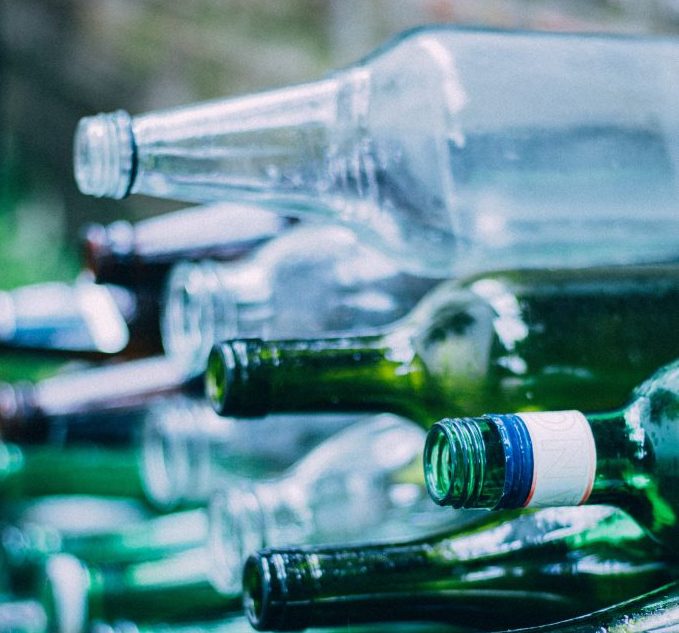The Future of Recycling in Reading

The introduction of food waste collections has taken Reading’s recycling rate to over 50% for the first time ever: Over 600 tonnes of food waste is diverted from landfill every month and used to generate electricity and fertiliser. Reading’s Labour Councillors are now planning for the next expansion to kerbside collections: glass. Reading’s Lead Member for Neighbourhoods and Communities, Labour Councillor Adele Barnett-Ward answers your questions about glass recycling.
Why doesn’t Reading collect glass from households already?
Glass collected at the kerbside can’t be separated by colour. Until recently, colour-separated glass from bottle banks could be endlessly recycled into glassware but mixed colour glass could not: it could only be used once for construction purposes, such as building new roads. We want to use recycling methods that have the greatest possible environmental benefit, which has meant colour-sorting using bottle banks. Recent advances in optical sorting technology mean that mixed glass can now be divided by colour after collection, removing the need to separate it – you may have noticed that all Reading’s bottle bins are now labelled ‘Mixed’.
So can I put glass in my red bin now?
Please don’t! If the paper and card in your red bin get contaminated with broken glass it can’t be recycled and will have to go to landfill. We will be bringing in separate containers for your glass recycling so we can avoid contamination and process it away from the mixed-recycling MRF.
When will this happen?
That’s sadly up to the government, if we could start tomorrow then we would. They have declared that there is too much variation in residential bins across the country. For example, in Wokingham, they don’t have wheelie bins but in Reading we do. They are going to introduce a new Household Waste and Resources Strategy that will dictate to councils what sorts and colours of bins everyone should have for different types of waste and how that waste should be collected. If we go ahead with kerbside glass collections before the Government bring out their strategy we could end up spending Reading residents’ money on bins and vehicles that we then have to scrap if they aren’t what the Government want us to use. Reading’s Labour councillors refuse to risk Reading residents’ money like that. The strategy was due to come out a year ago but we still don’t have a publication date.
.
The rules about recycling in Reading keep changing. How are we supposed to keep track?
We collect a much wider range of recyclables in Reading nowadays than even five years ago so I appreciate that not everyone will know that, for example, you can put pizza boxes and garlic puree tubes in your red bin, or that you can recycle small electrical items like irons or hairdryers by putting them on top of your red bin in a carrier bag. Hard plastics such as buckets and children’s toys used to have to go to landfills, but they can now be recycled via the Household Waste and Recycling Centre at Smallmead. The free re3cyclopedia app helps you check what goes where. Type in your postcode and whatever you need to throw away and the app will tell you whether you can put the item in one of your domestic bins, a nearly recycling bank, or whether it needs to go to Smallmead. You can also use the app to book a slot at Smallmead, check your bin day, or report a missed bin. It’s really helpful, and it gets updated as the range of recycling options widens… kerbside glass collections may be the next project on the list but it isn’t the last!
What’s the one thing you wish people knew about waste and recycling in Reading?
Every household is entitled to two food waste bins and two red bins totally free of charge and you can put out extra recycling in a cardboard box and the crews will take that as well as long as it is dry (wet cardboard can’t be recycled). For most families that will be plenty along with a slimmer grey bin but if you have more than five adults or two or more children in nappies in a property then you are eligible for extra grey bin capacity. Anyone else who is struggling with a smaller grey bin can have a free bin audit – one of our specialist recycling team will visit you and discuss your waste management with you and will arrange for extra bins for you if needed – contact them through the council’s website Reading Borough Council or by calling 0118 937 3787.
